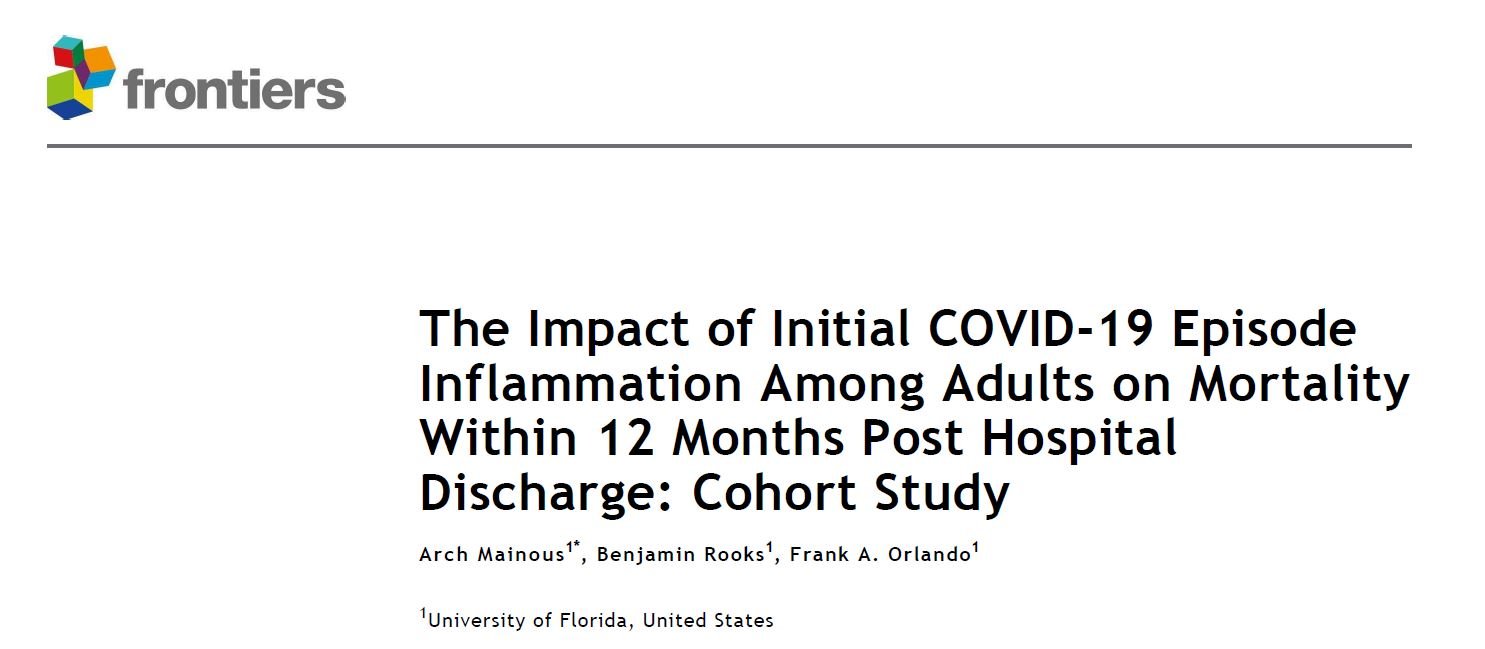Are Steroids the Cure for Long COVID?
/A new study shows a markedly beneficial effect of steroids after COVID hospital discharge.
Some of you may be aware that I have an online course on interpreting the medical literature. It goes through everything from reading an abstract, to understanding the statistical framework for hypothesis testing.
But if you were to distill that entire course into once sentence it would probably be something like “be really careful with observational studies”.
It’s rare that an observational study, in counterpoint to a randomized trial, makes me sit back and say “hmm”, but that happened this week when I came across this study, appearing in Frontiers in Medicine, which suggests that we may be treating long covid all wrong.
The problem with observational studies – in a word – is confounding. A study finds alcohol consumption is associated with lung cancer, but really alcohol is not causing lung cancer, it’s that people who smoke are more likely to drink alcohol.
The only way to really get rid of confounders is through randomization. But sometimes, an effect is strong enough that it overcomes confounding, and I think we may have an example of that here in this Frontiers study – hence the “hmm”. Let me walk you through it.
Researchers from the University of Florida pulled data from the electronic health record on 1,207 patients hospitalized with COVID from 2020 to 2021 in their health system. Overall, the researchers, led by Arch Mainous, were interested in how inflammation might lead to long COVID, and how to treat it.
The analysis focused on those who were discharged alive after a COVID infection. Despite the fact that these were people who “pulled through”, a substantial portion – 15% - went on to die in the following year.
Inflammation, as assessed through c-reactive protein (CRP) levels measured during the initial hospitalization, was a significant predictor of who would die after recovery from COVID. Those with CRPs above average were 60% more likely to die in the next year compared to those with CRPs below average.
Would anti-inflammatories help? The authors first looked at the receipt of intravenous steroids, finding that those who received IV dexamethasone were around 50% more likely to die than those who didn’t.
Does that mean dexamethasone is deadly? Of course not – this is classic observational study confounding. People who got IV dexamethasone were sicker to begin with than people who didn’t. That finding does not make me sit up and take notice.
But then the authors looked at people who were discharged on oral steroids. What they found, in my opinion, goes exactly opposite to how confounding should work in a study like this.
People who were discharged on oral steroids were half as likely to die in the next year as those who were discharged without oral steroids.
This is not what I would have expected from observational data. Surely, people discharged on steroids would have been sicker than those discharged without – so it should have appeared that oral steroids at discharge are harmful, just as it appears that IV steroids during hospitalization are harmful. But in both unadjusted analysis, and an analysis adjusting for age, sex, race, and comorbidities – discharge on oral steroids was protective.
If so, this has really important implications. Dexamethasone is a cornerstone in the care of the patient hospitalized with severe COVID-19, but a prolonged outpatient steroid course is far from standard of care. Most of us, myself included, get very nervous about the idea of long-term steroid usage – which can increase the risk of infection, bone density loss, weight gain, and diabetes.
And yet it is hard to argue with a 50% reduction in mortality.
I started this piece summarizing my online course with a simple “be really careful with observational studies”. Probably the second major theme of the course, though, is “no one study is sufficient to draw a conclusion” and we would do well to remember that here.
This is a single study from a single center. But the data to replicate this type of analysis is widely available at other centers. Given the potential to change how we treat people discharged after a COVID infection, it would behoove those of us with access to that data, to move quickly on replication.
A version of this commentary first appeared on Medscape.com



